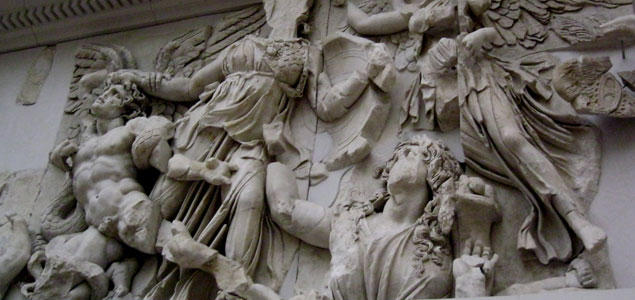
Pergamon relief (Pergamon Museum in Berlin).
I live in a perfect panopticon, from the terrace of my apartment on the top floor of a building in Montevideo, where I have moved after an absence of 34 years, I can see the whole city. There are no surrounding buildings to bother me; I live in a neighbourhood with low-level houses and lots of trees.
From my iPhone I look at my emails dozens of times per day; this total ubiquity allows me to stay abreast of what is happening in Sweden, where I have lived throughout my exile, and in the countries where I have friends who matter to me.
Thanks to my iPhone, Skype and Twitter, I can follow what is going on in Damascus, in Gaza and in Stockholm. I am totally connected and my virtual presence often feels more entertaining and interesting than the one which I live in the everydayness of real life.
When I started playing virtual games Ultima, Everquest, World of Warcraft I very quickly noticed that the emotions and feelings that they aroused in me were difficult to emulate outside the games. The adrenaline, which reached dangerous levels when a monster was chasing me, the fight, the sense of loss when my avatar was dying or injured, all those sensations were infinitely more powerful inside the game than outside of it.
Even virtual eroticism reached levels of communication and abstraction that often beat any IRL (in real life) encounters.
However, I also know that this extreme virtuality that I live makes me vulnerable to mix-ups and to the disappearance of the body and of its sensual and sensorial dimensions. The mediaeval mystics, San Juan de la Cruz and Teresa de Avila, reached ecstasy through prayer and suggestion, they always wanted to transcend the limits of the body, escape the prison of the senses, reduce the signs that mark hunger, thirst, libido. Today it is games or simulations that make us access the post-human dimension.
In Matrix the heroes connect to machines and databases that allow them to instantly acquire the knowledge or skills they require to pilot aircraft or speak unknown languages.
The altar of the Pergamon Museum in Berlin shows in an immense high-relief frieze the struggle between the gods and the giants; the fight is presented there in one plane and the eye can see even the most insignificant details of the bodies in movement. This was how the world maps of Mediaeval times were presented too, the earth was flat and had an end, Finisterre, the northernmost cape in Spain, was not a metaphor, the earth finished there and the sea that surrounded it ended up in an abyss from which nobody could escape.
British writer Terry Pratchett, creator of the hilarious “Discworld” books also uses this formula, the planet is flat and supported on the backs of four elephants which, in turn, are standing on the shell of a giant turtle, Great A’Tuin.
Also thinking about that flat world controlled by an all-seeing eye, was British scientist Jeremy Bentham, who, at the end of the 18th century, designed a model prison in which a giant eye could control all the inmates: the panopticon, which would later be the great metaphor of George Orwell in 1984.
Theoretician Michel Foucault also used the panopticon as a metaphor for society in his book on prisons, Discipline and punish, in which he defined our modern society as a society in which the norm implies the intrinsic acceptance of individual rights, the right to subversion, the right to dissent.
The major social structures in European mediaeval society were the castle and the convent, two models of production and control that created bonds of vassalage and inter-dependence. Feudalism combined the most perfect decentralisation with its complex system of relations of obedience and total centralisation of the figure of the king, the sun, around which the world revolved.
Uruguayan literary and film critic Alicia Migdal writes thus about the panopticon present in a large part of the films produced by Hollywood, as in the Bourne film trilogy:
“Bourne, the amnesic agent, was programmed to react to every dangerous stimulant as well as to think of strategies. The character will have to deconstruct that machine they turned him into, to discover who he is again and not only what he is, in other words a machine for predicting and killing. In that journey to the deepest part of his identity, he will have to confront the totality of the panopticon that constructed it. In other words, he will gradually discover, first, that such a panopticon exists, that he was formatted by that system and that his progressive knowledge must act in reverse. By de-walking the path, having all the information in his visual and conceptual field, Bourne will reach the heart of his identity which is the heart of the system. The dizzying trilogy is the deconstruction of that panopticon. We can also think about the different way the theme is represented in the German film The Lives of Others, in which State control is personified through the real eye of the Stasi civil servant who personally, physically spies on the pair of lovers, and how that personalisation emotionally compromises it and leads it to its death, by making it fail partly in its function”.
Surveillance and control are not reduced to machines and screens that control our space and that may determine our position on a virtual map of increasing complexity. In addition to the satellites that circulate around our planet and that send information on storms, earthquakes or road accidents, there is a surveillance and a control exercised by states that apply what Italian philosopher Giorgio Agamben called the “State of Exception”.
The state applies laws that were passed in case of war and repression of riots, then those laws that reduce the civil rights of citizens and that give the state total authority become permanent laws, and the state generates a situation of permanent alert.
In a short stay in Cuba a few years ago I discovered that the state did not need sophisticated machines or surveillance devices to control the lives of citizens, that the Committees for the Defence of the Revolution have becoming centres for informing on and reporting people, where the lives of those who live in Cuba and of visitors are closely monitored. Talking with fishermen and taxi drivers they all said to me:“in this country we make love like crazy and we drink and we smoke because they are the only places where the State cannot control us”.
Tonight I will make my avatar transgress all the laws of the virtual worlds of others, it will climb mountains, fight dragons and make love with tenderness and passion, as love should be made in virtual worlds and in all others.
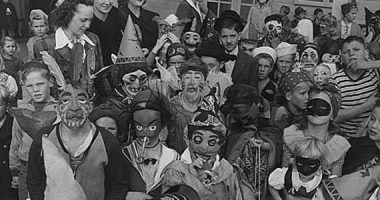
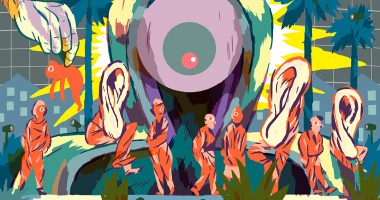
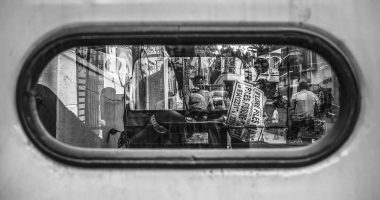

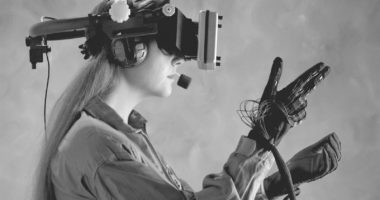
Leave a comment